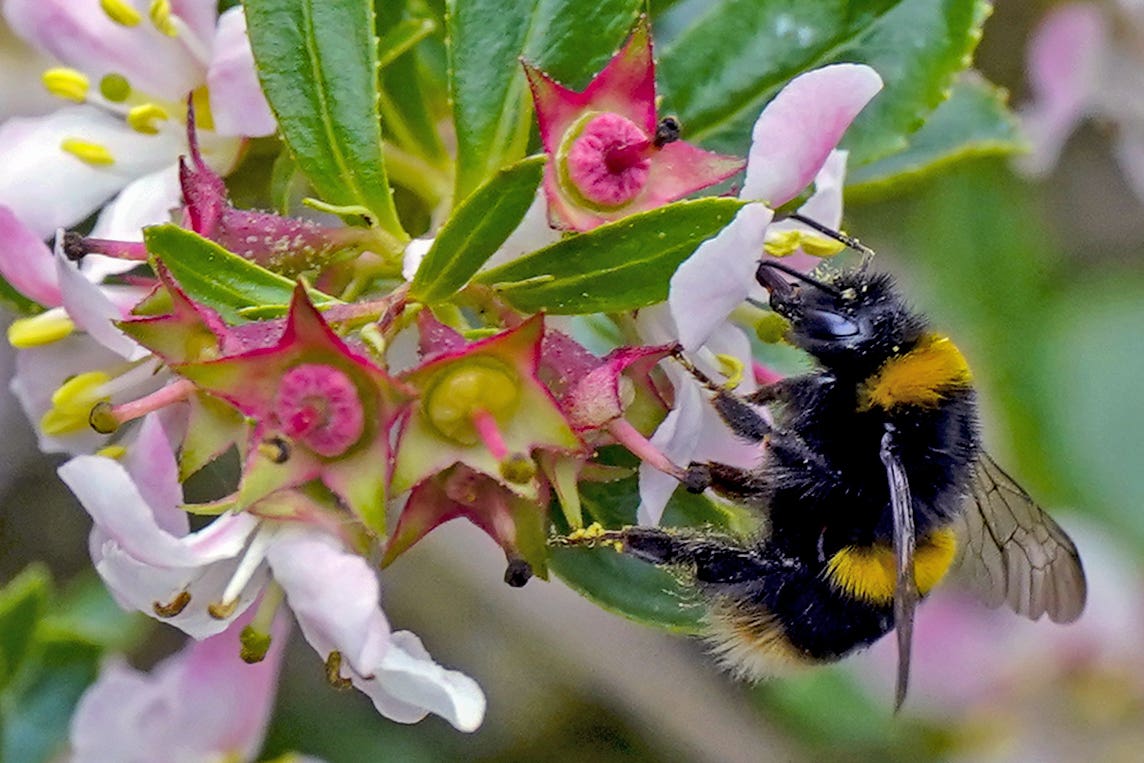Social bees ‘travel greater distances for food than solitary ones’
The researchers said their findings could have implications for pollination and conservation strategies for bees and plants.

Social bees travel greater distances for pollen and nectar than their solitary counterparts, according to scientists.
Researchers from the University of Bristol have found that social bees – such as Bumble bees and Honey bees – have larger foraging ranges compared to solitary bees – such as Miner and Mason bees.
The experts said their findings, published in the journal Current Biology, could have implications for monitoring pollination as well as conservation strategies for bees and plants.
Lead author Dr Christoph Grueter from Bristol’s School of Biological Sciences, said: “Since there will be a big international push for reforestation and rewilding, this will help us understand how reforestation and rewilding projects might affect and be affected by different pollinator groups.
“Their social lifestyle means that bee colonies collect food over a much larger area than solitary bees.
Our findings suggest that solitary bees might be most affected by human-caused habitat loss and fragmentation
“This helps us to plan effective conservation strategies to help both bees and the plants they pollinate.”
There are around 270 bee species in Britain, just under 250 of which are solitary bees.
Social bees are part of colonies that make honey and wax in their hives.
Solitary bees, on the other hand, collect pollen and nectar from flowers for their eggs, which they lay in holes underground on inside wood.
There are several traits that help social bees travel greater distances – such as body size and colony size.
These bees also tend to focus on flower species that are more rewarding and travel greater distances to find these flowers.
For the study, the scientists used existing data on bee foraging distances of 90 bee species to develop a computer simulation.
Dr Christoph Grueter said: “Our findings suggest that solitary bees might be most affected by human-caused habitat loss and fragmentation because they will struggle more to find suitable food sources at greater distances.
“Social bees might be particularly important for the protection of endangered plant species that exist only in isolated patches.
“Since many social bee species can be kept in hives, we could use our understanding of their foraging ranges in targeted ways to aid the pollination of plants in remote areas.”
Bookmark popover
Removed from bookmarks